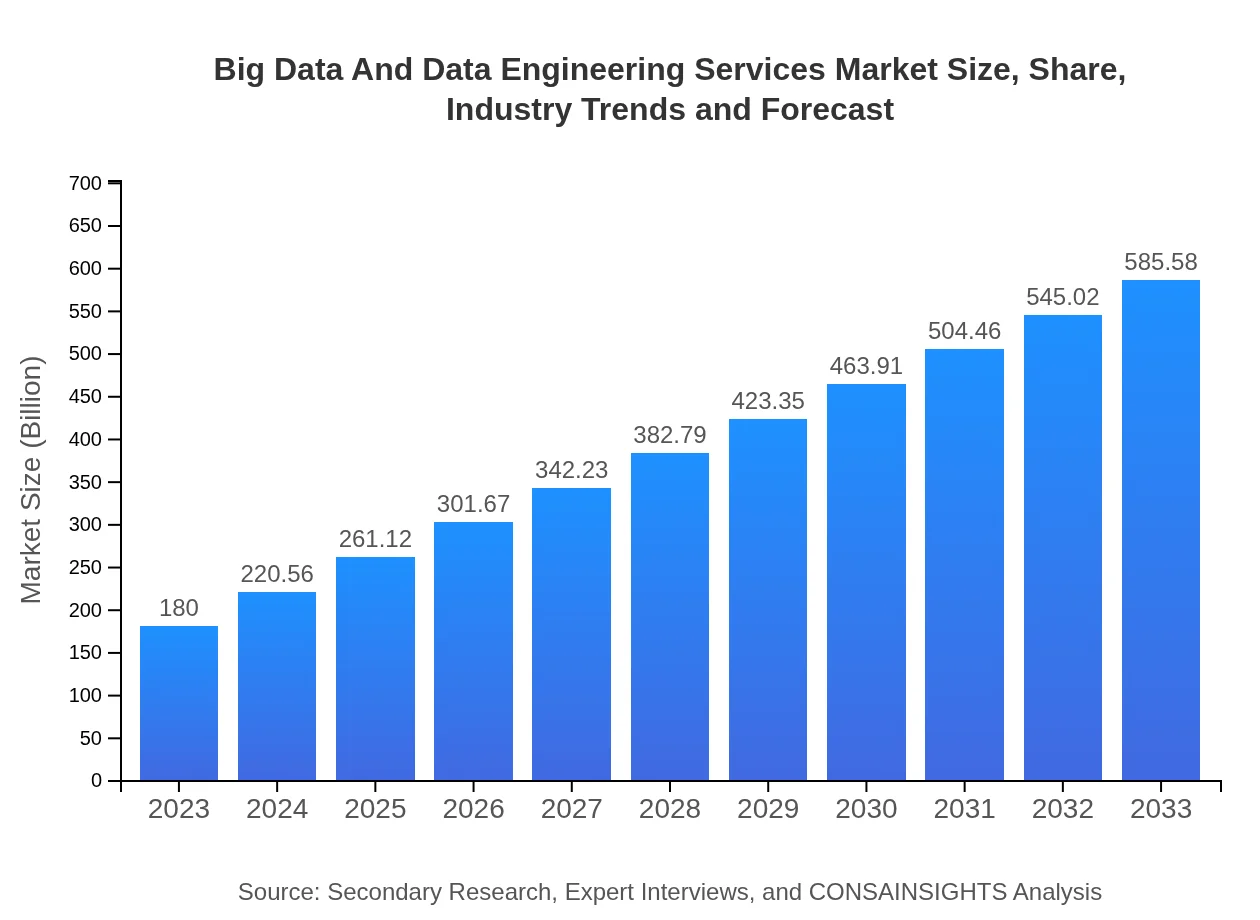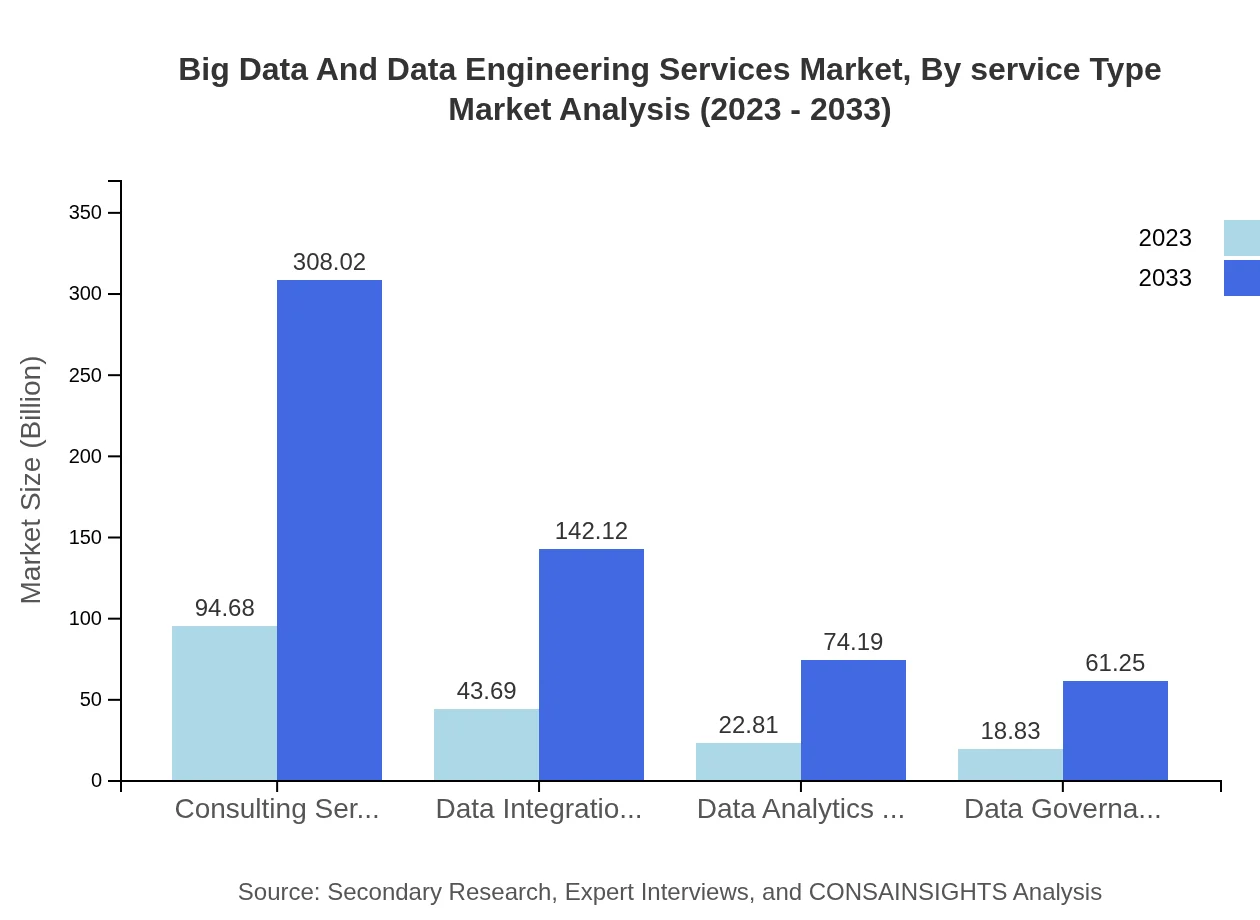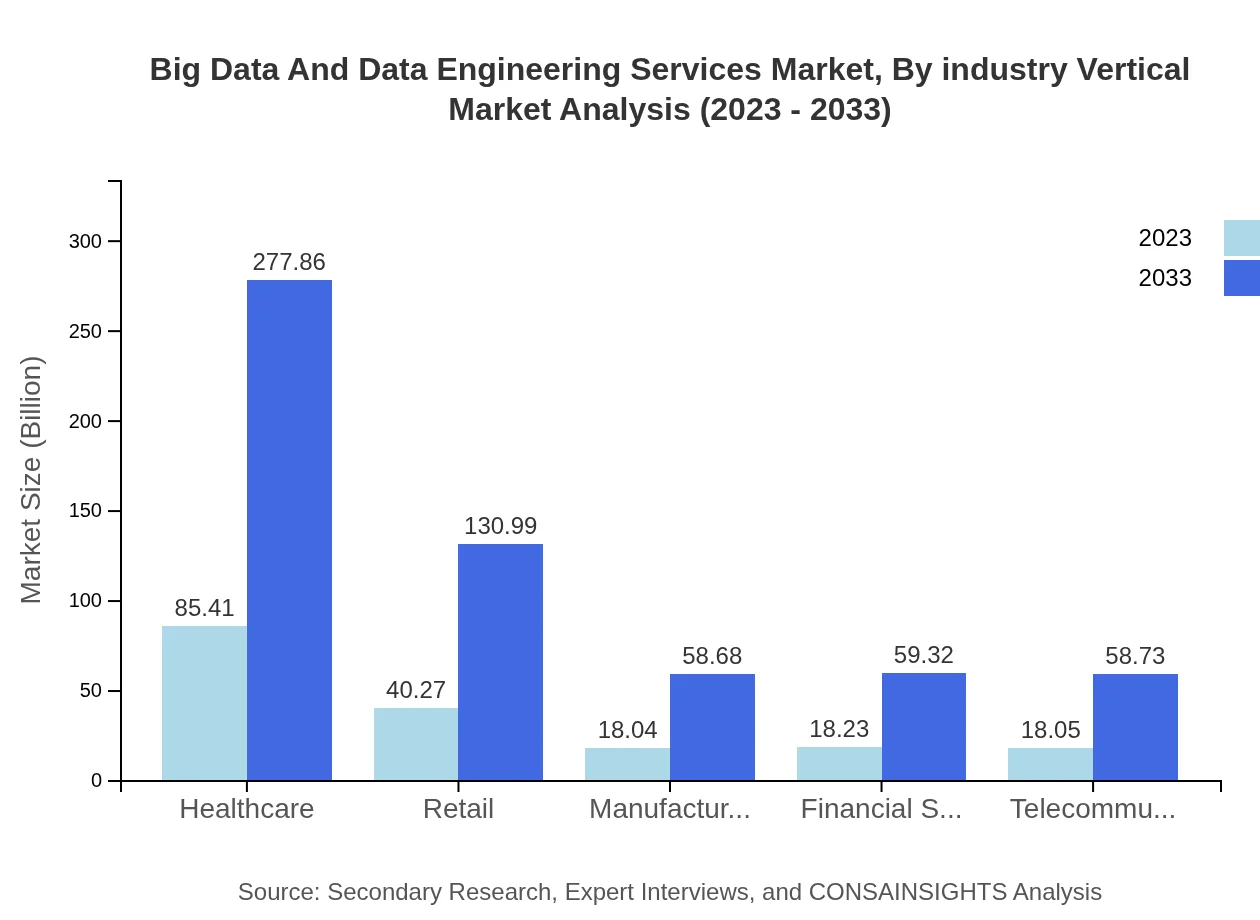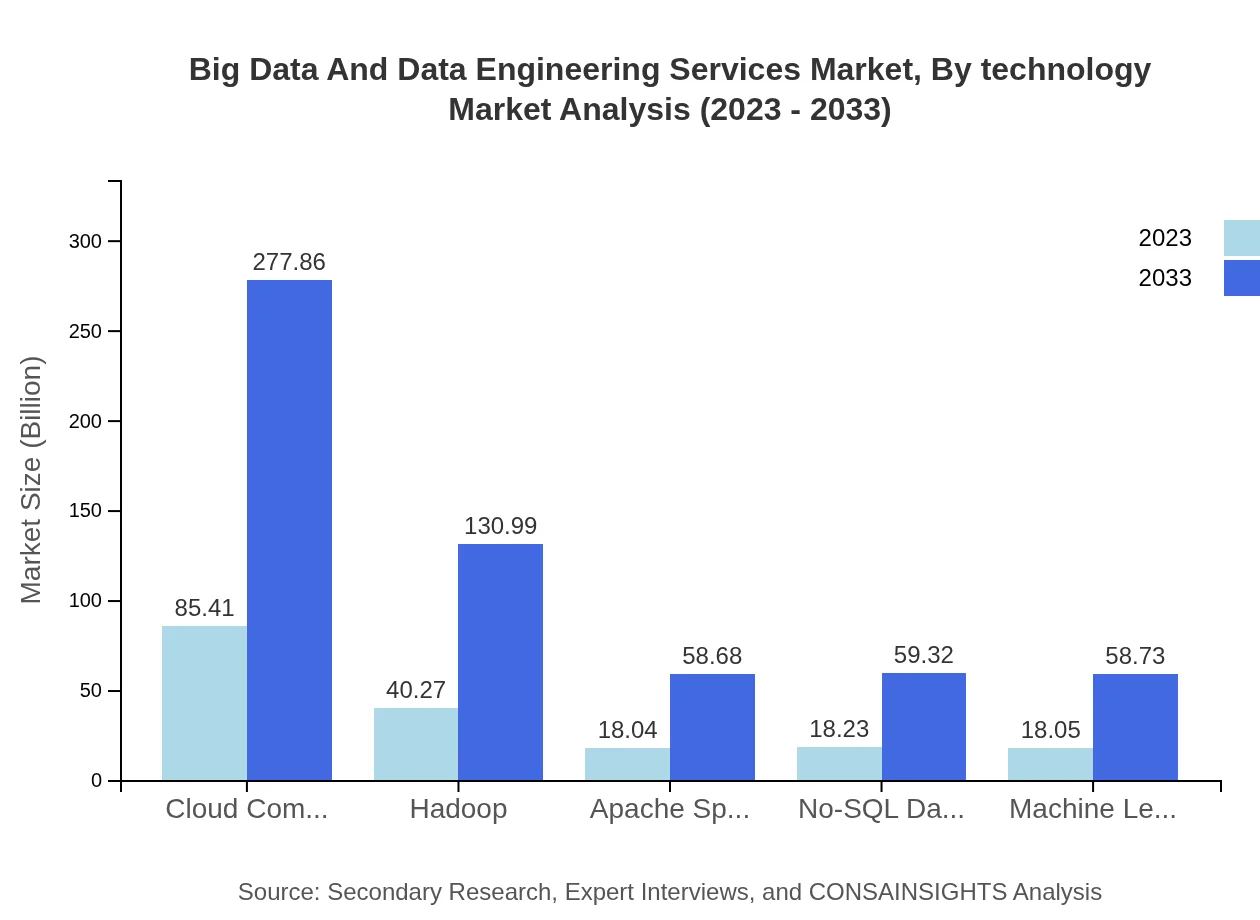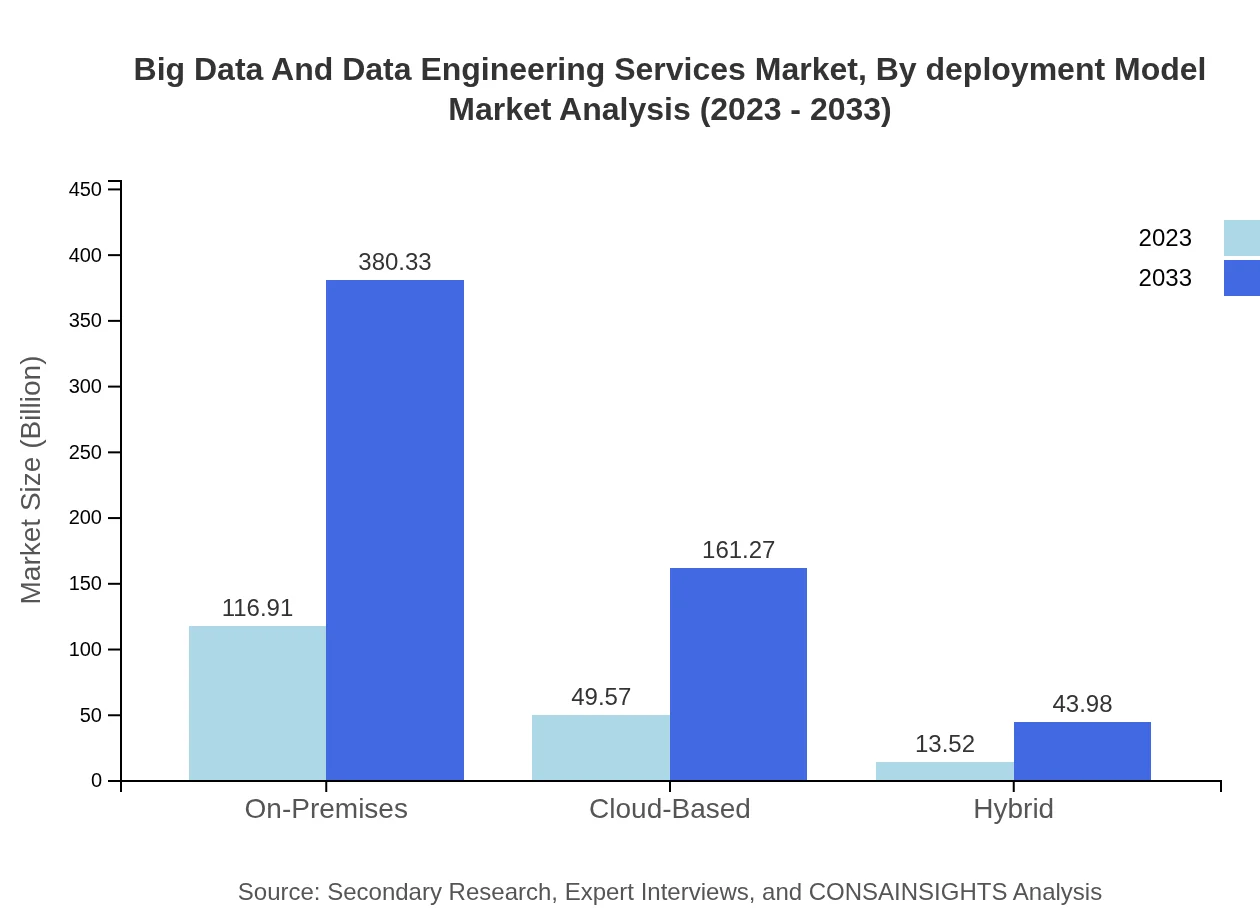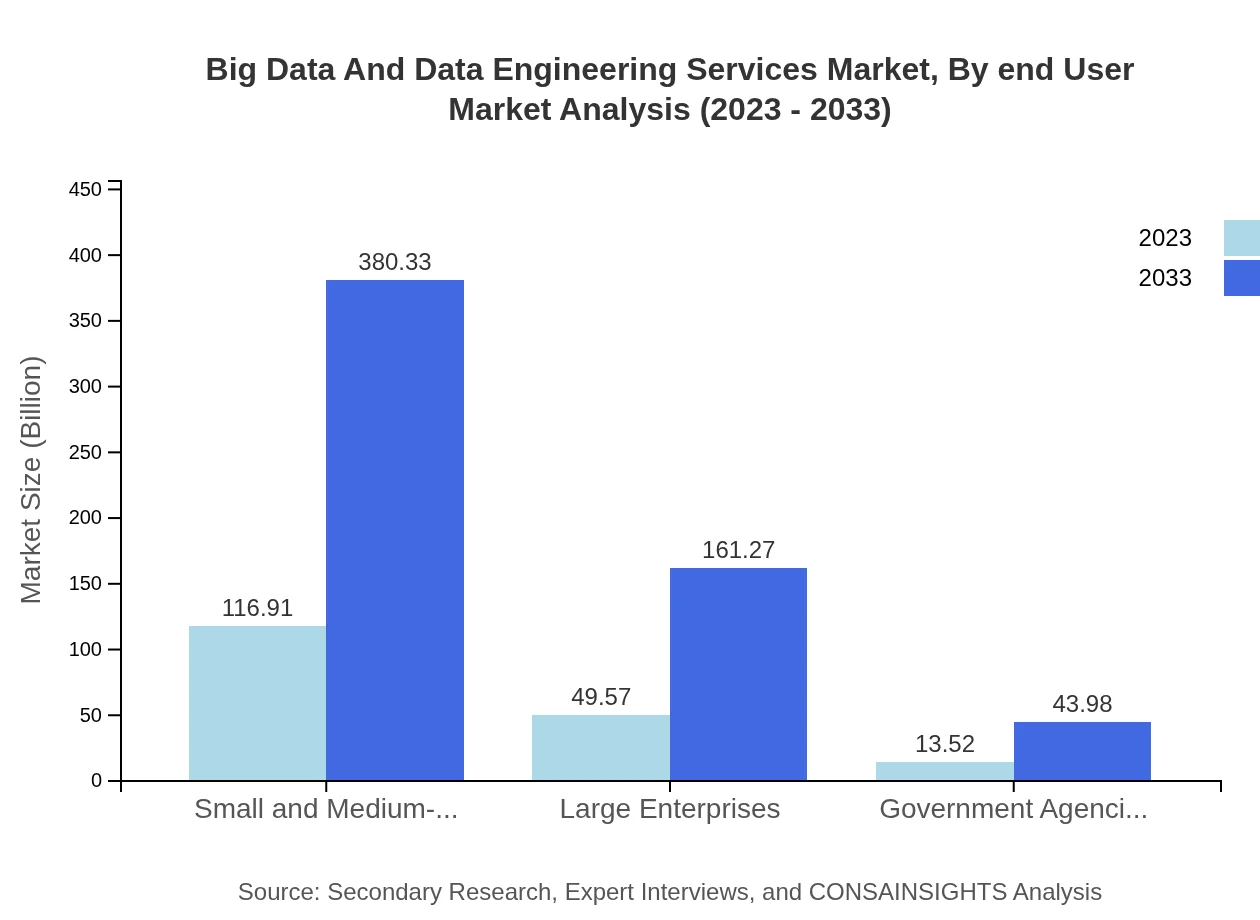Big Data And Data Engineering Services Market Report
Published Date: 31 January 2026 | Report Code: big-data-and-data-engineering-services
Big Data And Data Engineering Services Market Size, Share, Industry Trends and Forecast to 2033
This report provides a comprehensive analysis of the Big Data And Data Engineering Services market from 2023 to 2033, featuring insights on market size, trends, technological advancements, and geographical breakdowns.
| Metric | Value |
|---|---|
| Study Period | 2023 - 2033 |
| 2023 Market Size | $180.00 Billion |
| CAGR (2023-2033) | 12% |
| 2033 Market Size | $585.58 Billion |
| Top Companies | IBM, Oracle, Microsoft, Amazon Web Services (AWS) |
| Last Modified Date | 31 January 2026 |
Big Data And Data Engineering Services Market Overview
Customize Big Data And Data Engineering Services Market Report market research report
- ✔ Get in-depth analysis of Big Data And Data Engineering Services market size, growth, and forecasts.
- ✔ Understand Big Data And Data Engineering Services's regional dynamics and industry-specific trends.
- ✔ Identify potential applications, end-user demand, and growth segments in Big Data And Data Engineering Services
What is the Market Size & CAGR of Big Data And Data Engineering Services market in 2033?
Big Data And Data Engineering Services Industry Analysis
Big Data And Data Engineering Services Market Segmentation and Scope
Tell us your focus area and get a customized research report.
Big Data And Data Engineering Services Market Analysis Report by Region
Europe Big Data And Data Engineering Services Market Report:
In Europe, the market is set to increase from $64.15 billion in 2023 to approximately $208.70 billion in 2033. The growth is driven by stringent regulations around data privacy, increasing awareness about data utilization, and investments in advanced analytic tools.Asia Pacific Big Data And Data Engineering Services Market Report:
In the Asia Pacific region, the market is projected to grow from $31.46 billion in 2023 to approximately $102.36 billion by 2033. Factors driving this growth include rapid digital transformation, burgeoning e-commerce sectors, and increasing investments in data analytics technologies.North America Big Data And Data Engineering Services Market Report:
North America is anticipated to dominate the market, growing from $59.62 billion in 2023 to an estimated $193.94 billion by 2033. The region benefits from technological advancements, a mature IT infrastructure, and high adoption rates of big data solutions among enterprises.South America Big Data And Data Engineering Services Market Report:
The South American market is expected to expand from $16.04 billion in 2023 to $52.18 billion in 2033, spurred by advancements in cloud computing and a growing focus on improving operational efficiencies within businesses across various sectors.Middle East & Africa Big Data And Data Engineering Services Market Report:
The Middle East and Africa market is anticipated to rise from $8.73 billion in 2023 to $28.40 billion by 2033. Growing investments in digital transformation initiatives and an increasing emphasis on data-driven decision-making are key factors for this growth.Tell us your focus area and get a customized research report.
Big Data And Data Engineering Services Market Analysis By Service Type
The Big Data and Data Engineering Services market by service type comprises consulting services, data integration services, data analytics services, and data governance services. In 2023, consulting services lead the market with a size of $94.68 billion, anticipated to grow to $308.02 billion by 2033. Data integration services and analytics services also represent significant segments, reflecting the increasing need for effective data management and strategic analytics among businesses.
Big Data And Data Engineering Services Market Analysis By Industry Vertical
The industry verticals utilizing Big Data And Data Engineering Services include healthcare, retail, manufacturing, financial services, and telecommunications. Healthcare, for instance, is projected to grow from $85.41 billion in 2023 to $277.86 billion by 2033, highlighting the sector's reliance on data for patient management, predictive analysis, and operational efficiencies.
Big Data And Data Engineering Services Market Analysis By Technology
The technologies driving Big Data And Data Engineering Services include cloud computing, Hadoop, Apache Spark, No-SQL databases, and machine learning. Cloud computing, for example, will see a growth from $85.41 billion in 2023 to $277.86 billion by 2033, reflecting a shift toward more scalable and flexible data storage solutions.
Big Data And Data Engineering Services Market Analysis By Deployment Model
Market segmentation by deployment model includes on-premises, cloud-based, and hybrid solutions. The on-premises model currently holds a significant market share with an estimated value of $116.91 billion in 2023, projected to grow to $380.33 billion by 2033, while the trend towards cloud-based deployments accelerates.
Big Data And Data Engineering Services Market Analysis By End User
End users of Big Data And Data Engineering Services include small and medium-sized enterprises (SMEs), large enterprises, and government agencies. The SME segment, valued at $116.91 billion in 2023, is expected to expand significantly as more organizations realize the importance of data-driven strategies for their growth trajectories.
Big Data And Data Engineering Services Market Trends and Future Forecast
Tell us your focus area and get a customized research report.
Global Market Leaders and Top Companies in Big Data And Data Engineering Services Industry
IBM:
IBM offers a wide range of big data and analytics solutions, including cloud data services and AI-driven insights, fostering data-driven decision-making across various industries.Oracle:
Oracle provides comprehensive solutions for big data architecture, analytics tools, and database services, widely recognized for its robust cloud offerings and enterprise solutions.Microsoft:
Microsoft's Azure platform delivers extensive big data services and analytics capabilities, empowering businesses with tools to analyze and visualize their data.Amazon Web Services (AWS):
AWS leads in cloud-based data services, offering scalable solutions for data storage, analytics, and machine learning, meeting the diverse needs of businesses worldwide.We're grateful to work with incredible clients.









FAQs
What is the market size of Big Data and Data Engineering Services?
The Big Data and Data Engineering Services market is expected to reach approximately $180 billion by 2033, growing at a CAGR of 12% from its current value in 2023.
What are the key market players or companies in this Big Data and Data Engineering Services industry?
Key players in the Big Data and Data Engineering Services industry include major tech firms that focus on data analytics, cloud services, and AI-driven solutions, along with specialized data consulting firms that offer tailored data management services.
What are the primary factors driving the growth in the Big Data and Data Engineering Services industry?
Growth drivers include increased data generation, the demand for data analytics for decision-making, advancements in cloud computing technology, and rising need for data-driven strategies across various sectors.
Which region is the fastest Growing in the Big Data and Data Engineering Services?
The Asia Pacific region is the fastest-growing, with market size projected to increase from $31.46 billion in 2023 to $102.36 billion by 2033, driven by rapid digital transformation initiatives.
Does ConsaInsights provide customized market report data for the Big Data and Data Engineering Services industry?
Yes, ConsaInsights offers customized market report data tailored to specific needs in the Big Data and Data Engineering Services industry, ensuring insights address unique client requirements.
What deliverables can I expect from this Big Data and Data Engineering Services market research project?
Deliverables typically include comprehensive market analysis reports, insights into market trends, competitor analysis, segmentation data, and forecasts that provide strategic guidance for investment decisions.
What are the market trends of Big Data and Data Engineering Services?
Current trends include increased adoption of AI and machine learning, surge in demand for cloud-based services, focus on data privacy and governance, and the integration of IoT devices into data infrastructures.

